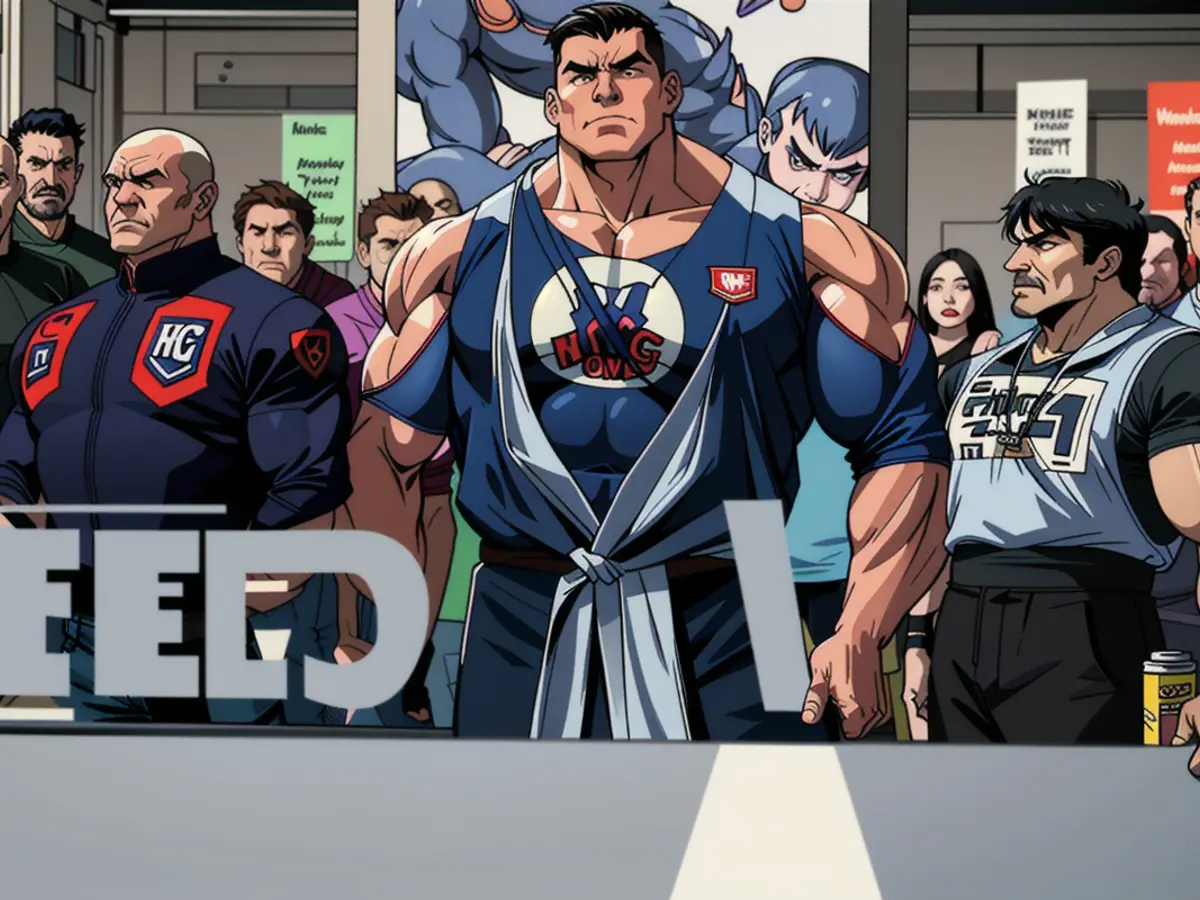The monetary toll of the strike on Volkswagen is as follows.
At Volkswagen, the second warning strike in the ongoing salary discussions has been initiated. The IG Metall union aims to prevent salary reductions, layoffs, and plant closures. However, the corporation's leadership feels compelled to implement cost-saving measures.
Relations at Volkswagen are tense. In time for the fourth round of salary negotiations, the IG Metall union has called for a full-scale warning strike. Production is anticipated to cease at nine out of ten German VW factories for four hours each today. A resolution does not seem likely, with issues including salary reductions, plant closures, and layoffs under discussion.
This warning strike is costing the company a significant amount of money. As reported by "Handelsblatt" newspaper, citing company sources, the production halt in Wolfsburg, Emden, Hannover, and Zwickau cost around 40,000 euros per striking minute at the beginning of the strike last week.
Should the salary dispute persist, as it currently appears to, it could become very costly for Volkswagen. The union is likely to then organize a full-day work stoppage across all plants next year, followed by an open-ended strike.
Time is critical. According to "Handelsblatt", without a swift agreement, extra expenses in the billions could materialize. The newspaper also reports, citing company sources, that a "shadow tariff" will be implemented if no compromise is reached between IG Metall and VW management within the next few weeks and no new collective agreement is signed.
Challenging Negotiations
As reported by "Handelsblatt", this would mean that, starting next year, salary regulations that applied prior to January 1, 1994, would resume application. The salaries of the 120,000 Volkswagen AG employees would then increase by approximately 4.5% across all wage groups. Moreover, there would be 1.3 months' pay and an old bonus plan.
The "Handelsblatt" further reports that the IG Metall union had previously estimated the costs of reintroducing this shadow tariff at around one billion euros. However, insiders allegedly expect the costs to be up to two billion euros. The necessary provisions could necessitate another profit warning. Volkswagen might then need to intensify its cost-saving program.
The salary negotiations revolve around the pay of the approximately 120,000 employees at Volkswagen AG, where a company-specific salary agreement applies. Additionally, there are more than 10,000 employees at VW Sachsen, for whom an adjustment to the company salary agreement was agreed upon in 2021. Volkswagen rejects any increase and demands a 10% wage cut due to the company's challenging situation.
The negotiations become even more complex when employment security is discussed in parallel, which Volkswagen has terminated after over 30 years. Plant closures and layoffs are threatened. Furthermore, Volkswagen seeks to hire fewer trainees and reduce the pay of temporary workers who have, up until now, received a premium compared to regular temporary work.
As per the works council, at least three plants and tens of thousands of jobs are in danger. Volkswagen justifies the cuts due to high expenses and low utilization. "The VW Group is a case for restructuring," CEO Oliver Blume supposedly said at a works meeting last week.
An alternative cost-saving proposal by IG Metall and the works council, which involves avoiding mass layoffs and plant closures, was deemed insufficient by Volkswagen. IG Metall had offered to delay any potential salary increase, instead depositing it into a future fund. This would have provided the company with cost relief of 1.5 billion euros.
In exchange, Volkswagen would have agreed to refrain from plant closures and layoffs due to operational reasons. However, this would have been conditional upon adhering to the latest pilot agreement for the metal and electrical industry, which provides for a 5.1% increase in two stages. Additionally, management and shareholders would have also needed to contribute by foregoing bonuses and dividends, according to works council chairwoman Daniela Cavallo. Blume described these proposals at the works meeting as a "starting point," but emphasized that they were far from sufficient.
The manufacturing process at Volkswagen's motor vehicle factories could be significantly affected if the salary dispute continues. The company might need to consider implementing cost-saving measures in the manufacture of motor vehicles to offset the financial impact of the strike and potential salary increases.
In the ongoing negotiations, Volkswagen has rejected any increase in wages for its approximately 120,000 employees and has even proposed a 10% wage cut due to the company's challenging financial situation. This proposal, if accepted, could impact the manufacture of motor vehicles by reducing labor costs.






